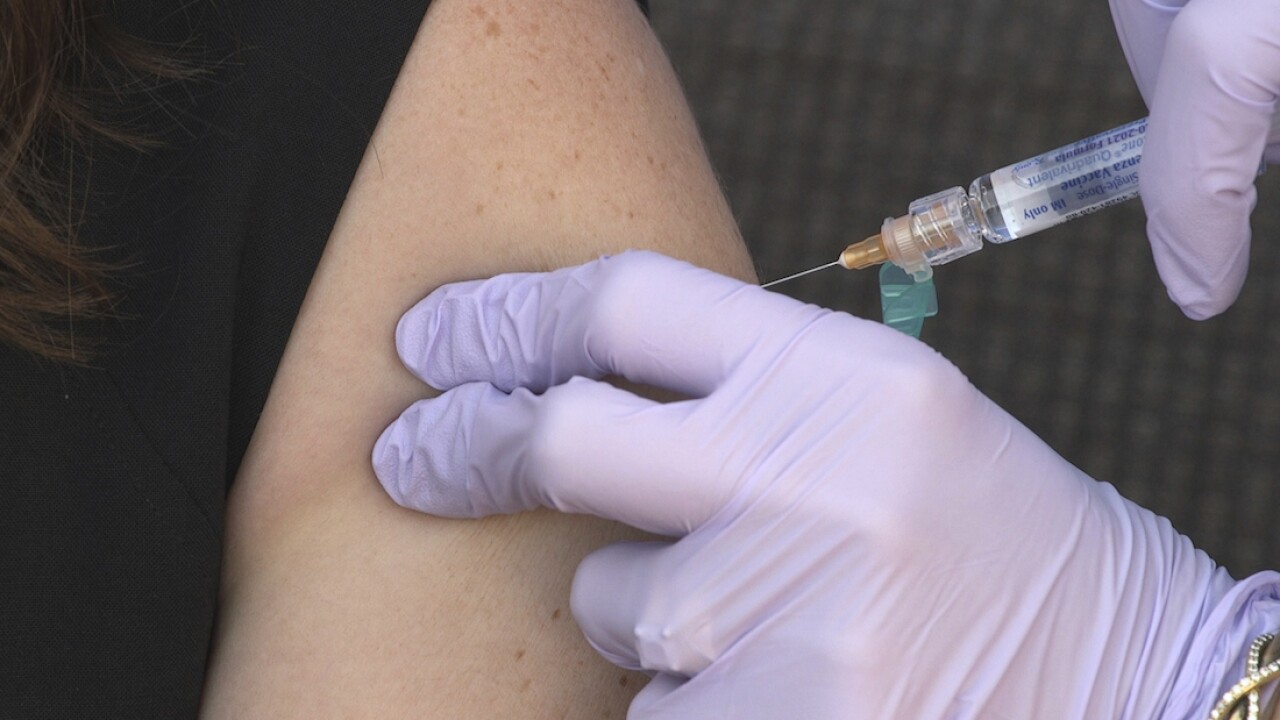NASHVILLE, Tenn. (WTVF) — Tennessee's top health official says COVID-19 case trends and hospitalizations across the state are finally "moving in the right direction" after weeks of record-breaking numbers amid the delta surge.
Tennessee Department of Health Commissioner Dr. Lisa Piercey provided a COVID update on Wednesday, saying that while she's "cautiously optimistic," the state is seeing a decrease or leveling off.
However, Piercey said the trend of deaths is different with the delta variant.
In previous surges, COVID deaths peaked about two or three weeks after the peak of cases.
However, with the delta variant, it's a little different. One reason is the delay in processing the number of deaths. Piercey said TDH doesn't record the death until all of the documentation is verified. Additionally, she said the average age of critically ill patients is much lower than in previous surges. Piercey said younger people tend to have longer stays in the ICU, and the unvaccinated population tends to be much younger, as well.
Piercey also discussed the state's supply of monoclonal antibody treatment. “We spent much of September worried about our supply. Fortunately, fingers crossed, we have had enough supply to last the month of September," she said.
With the state's now-waning demand, Piercey said she anticipates facilities to continue to have adequate or extra supply. She said they've been able to keep supply at all 220 providers and have not had to use a prioritization criteria.
She said the U.S. Department of Health and Human Services has continued giving its weekly allocation, and as a result, they have been able to meet the demand.
For example, she said this week they got about 6,300, which is about 1,000 less than last week, but the demand is also down.
Piercey also discussed booster shots and said to receive one right now, you must meet the following criteria: You had the Pfizer vaccine and received your second dose six months ago.
WHO'S ELIGIBLE FOR A BOOSTER SHOT?

Last Wednesday, the FDA amended the emergency use authorization for Pfizer’s COVID-19 vaccine to allow for a single booster dose to be administered at least six months after completion of the first two doses for people 65 years of age and older, those 18 to 64 who are at high risk of severe COVID-19, and those 18 to 64 whose occupational exposure to the coronavirus puts them at high risk of serious complications from COVID-19.
The CDC says those 65 years and older, residents in long-term care settings, and people 50 to 64 years of age with underlying medical conditions “should” receive a booster shot of Pfizer’s vaccine at least six months after their second dose.
Additionally, the CDC says people 18 to 59 years of age with underlying medical conditions "may" receive a Pfizer booster shot based on their individual benefits and risks. The same goes for people between 18 and 64 who are at increased risk for COVID-19 exposure and transmission because of occupational or institutional settings.
The Metro Public Health Department began offering booster shots to those who qualify last Friday.
The Scripps National Desk contributed to this report.


